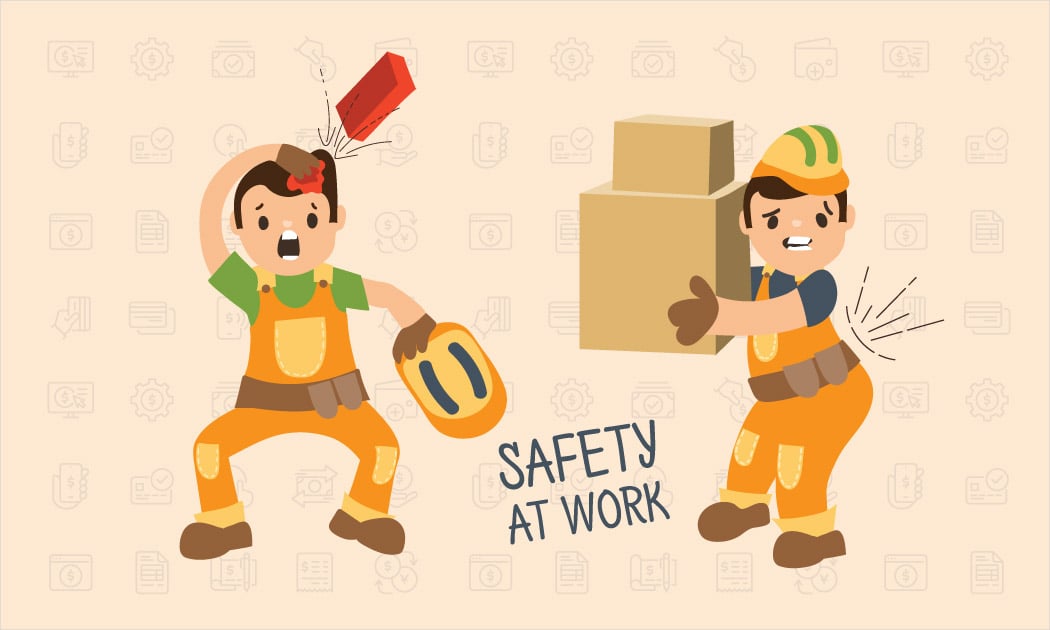The Payroll Blog
News, tips, and advice for small business owners
- Home
- Resources
- Payroll Blog
- Keeping Your Small Business Safe
Keeping Your Small Business Safe
Safety is an important workplace subject that has evolved over the years. As a small business owner, depending on your business, you may be wondering just how much emphasis you need to place on safety.

It’s important to remember that while some industries have more to plan around than others, injuries and accidents can be as simple as tripping over your computer cord. By ensuring your small business is as safe as possible, you can protect yourself, employees, and customers from unfortunate situations that can easily be avoided.
It All Starts With OSHA
You may think that your small business is pretty safe, but do you meet the Occupational and Safety Health Administration (OSHA) guidelines? OSHA requires that employers provide a safe and healthy work environment for their employees. A couple of basic items covered by OSHA are properly labeling any harmful chemicals and ensuring employees know the correct way to use a ladder. For example, if you don’t have a ladder or step stool in your small business but require employees to hang things up, having them use chairs and desks is not safe and could land you in big trouble if your employees get hurt because of it.
OSHA has a safety guide dedicated specifically to small business owners that you can download.
The Different Types of Small Business Safety

Slips, trips, and falls are among the most common safety mishaps. In addition to preventing these and adhering to OSHA standards, there are some other safety matters you need to consider as a small business owner.
- Natural Disasters / Storms: We have previously discussed what to do if a natural disaster hits your business, but it’s always good to be prepared for any type of attack from Mother Nature. You may be at your business when a storm is brewing, and you want to feel as safe and prepared there as you would at home.
- Crime: Businesses are an easy target for crime, from shoplifting to burglaries. You might consider having an extra set of eyes, in the form of cameras, in case anything does happen in your business. Additionally, create a plan for you and your employees to follow in case anybody is at the business alone when something like an attempted robbery does happen, whether it be an accessible alarm button or even a coded text sent to other employees. While these can be extreme cases, it never hurts to be prepared.
- Cyber Security: The beauty of the digital world is everything is accessible with the touch of a button held in the palm of your hand. Because of this, it’s easier than ever for hackers to access your information. In addition to having strong passwords, and not using the same password for multiple accounts, you can stay safe by putting personal information out only on secured servers. You also want to make sure the information of your employees is safe as well. As an example, if you outsource payroll, confirm the company you use treats the privacy and data security of you and your employees as a high priority.
How to Get Your Employees to Care
Safety might not be the most thrilling topic—and it can be easy to bypass it in favor of other, seemingly more pressing topics. While it may not be a topic you want to talk about, it’s a very serious one. When it comes to safety, it’s best to overly prepare in the hopes that you never need to fall back on your preparations. Take, for example, salting the company parking lot in advance of a winter storm—better to get it done and have the storm go around you then not salt and have someone fall.
Give realistic examples to help your employees understand the importance of being safe. It may also help to turn safety into a challenge. For example, every time a safety policy helps you avoid workplace injuries or incidents, consider celebrating with coffee and donuts. The safety of you and your team contributes to the success of your small business.
Workers’ Compensation
Even with the best planning and safety policies in place, there is always the chance that someone could get seriously hurt at your business. Most states require business owners to have workers’ compensation insurance. If you’re ever caught without coverage, you might face some hefty fines depending on how many employees you have.
At SurePayroll, we partner with Paychex Insurance Agency to offer small business owner’s easy, pay-as-you-go worker’s compensation insurance.
How does your small business stay safe? Tweet us @SurePayroll
Related Blog Posts
View Our Plans and Pricing
Small Business Is Our Business.
This website contains articles posted for informational and educational value. SurePayroll is not responsible for information contained within any of these materials. Any opinions expressed within materials are not necessarily the opinion of, or supported by, SurePayroll. The information in these materials should not be considered legal or accounting advice, and it should not substitute for legal, accounting, and other professional advice where the facts and circumstances warrant. If you require legal or accounting advice or need other professional assistance, you should always consult your licensed attorney, accountant or other tax professional to discuss your particular facts, circumstances and business needs.


